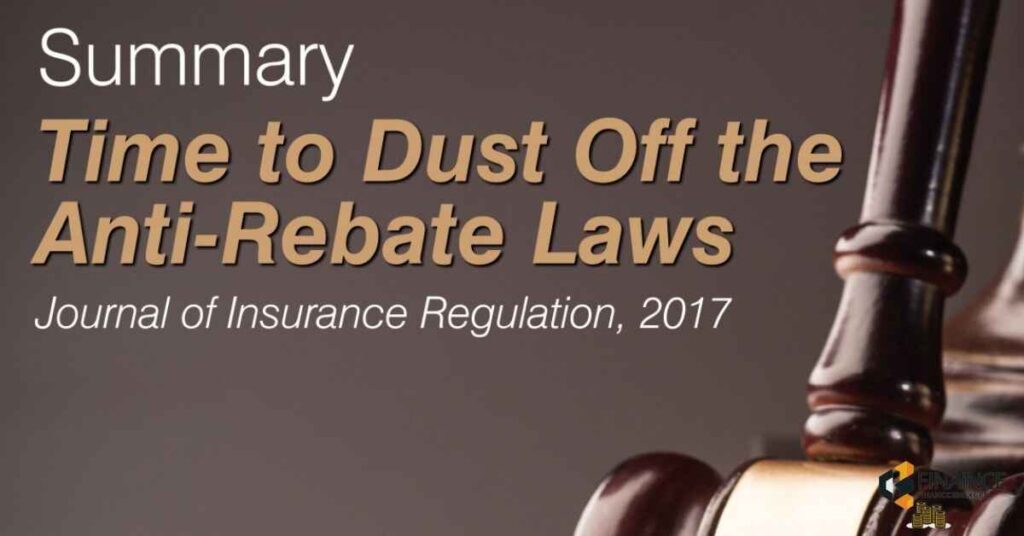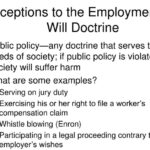Insurance rebating creates significant risks for both insurance professionals and consumers. The practice of offering incentives or commission kickbacks to secure policy sales undermines fair pricing and market stability. With varying state regulations and recent technology-driven changes in the industry, understanding what constitutes illegal rebating has become increasingly complex.
This comprehensive guide clarifies the key aspects of insurance rebating, including legal definitions, prohibited practices, and permitted exceptions. Whether you’re an insurance professional or policyholder, knowing these regulations helps ensure compliance and protects against potential penalties while maintaining market integrity.
Understanding Insurance Rebating – The Basics
Rebating in insurance isn’t just about offering discounts; it involves giving something of value to attract policyholders in ways not specified in the policy. Rebating practices can include anything from cash incentives to sharing commissions, but they’re regulated to maintain fairness and prevent unethical practices.
Definition and Core Concepts
Rebating is when an insurance agent offers money or incentives to a client to encourage the purchase of a policy. This practice, known as “inducement,” often involves agents sharing part of their commission with clients. While it can make insurance seem more affordable, rebating is strictly regulated in many states.
Historical Context of Insurance Rebating
Rebating practices began in the 1800s but soon created competition issues and risked the stability of insurance companies. In response, Massachusetts introduced the first anti-rebating law in 1887, and other states quickly followed. Later, the Model Act further strengthened anti-rebating regulations across the United States.
Common Forms of Insurance Rebating
Common types of rebating include commission sharing, premium reductions, and offering gifts or discounts. Some agents refund part of their commission to reduce premiums, while others offer future discounts or gift cards. These tactics aim to attract clients, but they often toe the line of legality in many states.
Legal Framework and Regulations
Anti-rebating laws draw a strict line around what incentives agents can legally offer, and every state interprets these rules uniquely.
Anti-Rebating Laws Overview

It prevent agents from offering any incentive that isn’t outlined in the policy’s terms. Enacted to ensure fair competition, these laws protect consumers and help maintain insurers’ financial health by prohibiting unauthorized discounts.
The NAIC Model Act
The National Association of Insurance Commissioners (NAIC) introduced the Model Act in 1945 to define rebating as an “unfair practice.” It restricts agents from giving rebates or incentives to secure sales. This model law serves as a framework for states, helping them establish consistent anti-rebating regulations.
State-by-State Regulations
Rebating laws vary widely across the U.S. While most states prohibit the practice, California and Florida permit certain types of rebating. State insurance commissioners enforce these laws, ensuring consumer protection and fair competition in the insurance industry. Always verify rebating rules specific to your state to avoid legal issues.
Legal vs. Illegal Rebating Practices
Rebating practices can cross a fine line between legal and illegal. Understanding the difference can help agents stay compliant while providing value to clients.
Prohibited Rebating Activities
Prohibited rebating includes offering cash, gifts, or discounts that aren’t part of the insurance policy itself. Illegal inducements, like sharing commissions or giving gifts to secure sales, can lead to penalties. These restrictions help maintain fair competition and protect consumers.
Exceptions and Allowances
Some states permit specific rebating practices, like offering minor gifts or services, as long as they don’t influence a sale directly. Legal rebating allows agents to provide added value within limits, such as referral gifts or small promotional items, without breaking the law.
The Gray Areas
Rebating rules aren’t always clear-cut, leaving room for interpretation. For example, certain incentives can be mistaken for rebates. Agents often face ambiguity over what constitutes an incentive versus an unlawful rebate, making caution essential in sales practices.
Special Focus: California and Florida
California and Florida have unique approaches to rebating that impact their insurance markets.
California’s Proposition 103
Proposition 103, passed in 1988, allows certain types of rebating in California. This law permits rebates as long as they’re transparent and regulated. California’s approach is unique, focusing on consumer benefits without risking market stability.
Florida’s Legal Framework
Florida permits agents to rebate part of their commission, unlike other states. This flexibility makes Florida a standout, offering competitive pricing options while still enforcing guidelines to protect clients.
Impact on National Markets
California and Florida’s rebating practices influence how insurance is marketed nationwide. These states encourage other regions to rethink their rebating laws, highlighting the balance between consumer benefits and maintaining fair market competition.
Enforcement and Penalties
Enforcing rebating laws is essential to keep the insurance market fair and reliable. Strict rules guard against unethical practices.
Regulatory Oversight
State insurance commissioners monitor compliance with rebating laws. They ensure agents follow legal guidelines and prevent unlawful discounts, upholding the industry’s integrity. These regulatory bodies keep a close watch on practices to protect both insurers and clients.
Consequences of Violations
Agents violating rebating laws can face serious consequences. Punishments include heavy fines, license suspensions, or even permanent revocation. Such penalties serve as a warning, emphasizing the importance of ethical practices in insurance sales.
Impact on Insurance Companies
Rebating can affect insurers by threatening financial stability. Unauthorized rebates may disrupt pricing and risk insurer solvency. Preventing these practices protects companies from financial loss and market instability.
Consumer Protection and Fair Practice
Anti-rebating laws help maintain a fair environment for consumers and companies alike.
Protecting Policyholder Interests
Anti-rebating laws shield consumers from unfair treatment. They ensure each policyholder is treated equally, without exclusive incentives influencing sales. These protections promote transparency and trust in insurance.
Fair Competition
Fair competition is essential in the insurance industry. By limiting rebating, regulations ensure that no agent gains an unfair advantage through rebates, thus preserving market integrity.
Market Stability
Anti-rebating laws play a role in market stability. By controlling incentives, these laws help prevent financial risks for insurers, supporting a balanced and steady insurance market.
Modern Challenges and Evolution
As insurance practices evolve, new challenges reshape rebating rules and expectations.
Technology’s Impact
Technology has transformed the way insurance operates, impacting rebating practices significantly. Digital platforms now allow agents to reach consumers instantly, and they can use data analytics to offer targeted incentives.
This ease of access and personalization, while convenient, creates new regulatory challenges. Keeping rebating practices fair and transparent becomes even more complex as online sales increase. Balancing technology’s convenience with regulatory compliance is a growing issue.
Emerging Trends
New trends continue to reshape the landscape of rebating. Insurance companies are exploring creative ways to engage customers, including offering incentives or premium discounts. However, these approaches often walk a fine line between lawful inducements and prohibited rebating.
Regulators keep a close eye on emerging practices, ensuring they don’t disrupt market fairness or consumer protection. These trends reflect the industry’s adaptation to consumer demands and evolving technology.
Future Outlook
The future of rebating in insurance is uncertain but promising. With technological advancements and a focus on consumer-centered approaches, rebating regulations may adapt to allow more flexibility.
However, maintaining market stability and preventing unfair competition will remain priorities for regulators. As the industry moves forward, the balance between innovation and compliance will define rebating’s role in modern insurance practices, shaping its regulatory landscape for years to come.
FAQ
What exactly constitutes rebating in insurance?
Rebating in insurance is when something of value is given to encourage the sale of a policy. This can include cash, gifts, or premium discounts that are not part of the policy itself.
Are there any legal forms of rebating?
Yes, some states allow certain forms of rebating. These legal rebates must comply with specific regulations and are often limited to non-cash incentives.
How do anti-rebating laws protect consumers?
Anti-rebating laws help ensure fairness in insurance pricing. They prevent agents from giving special deals that might lead to discrimination among policyholders.
What are the penalties for illegal rebating?
Penalties for illegal rebating can include civil fines and loss of an insurance agent’s license. Violators may face serious consequences for non-compliance.
How do rebating laws vary by state?
Rebating laws differ significantly from state to state. Some states strictly prohibit rebating, while others have more flexible regulations.
What’s the difference between rebating and legitimate discounts?
Rebating involves offering something extra not specified in the policy. In contrast, legitimate discounts are pre-approved reductions based on clear criteria.
How can insurance agents ensure compliance?
Insurance agents can ensure compliance by staying updated on state laws and regulations. Regular training and legal guidance are essential to avoid violations.
What should consumers know about rebating?
Consumers should know that rebating may not always be allowed. They should understand their rights and the rules in their state regarding discounts.
Conclusion
Understanding rebating in insurance is crucial for both consumers and agents. It helps maintain fairness and compliance in the industry. By knowing the rules, everyone can benefit from better practices. Awareness of what constitutes rebating allows consumers to make informed choices, while agents can ensure they follow legal guidelines. This knowledge protects interests and fosters trust in insurance transactions.







